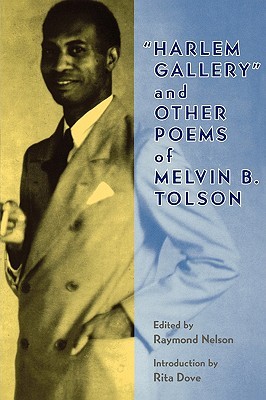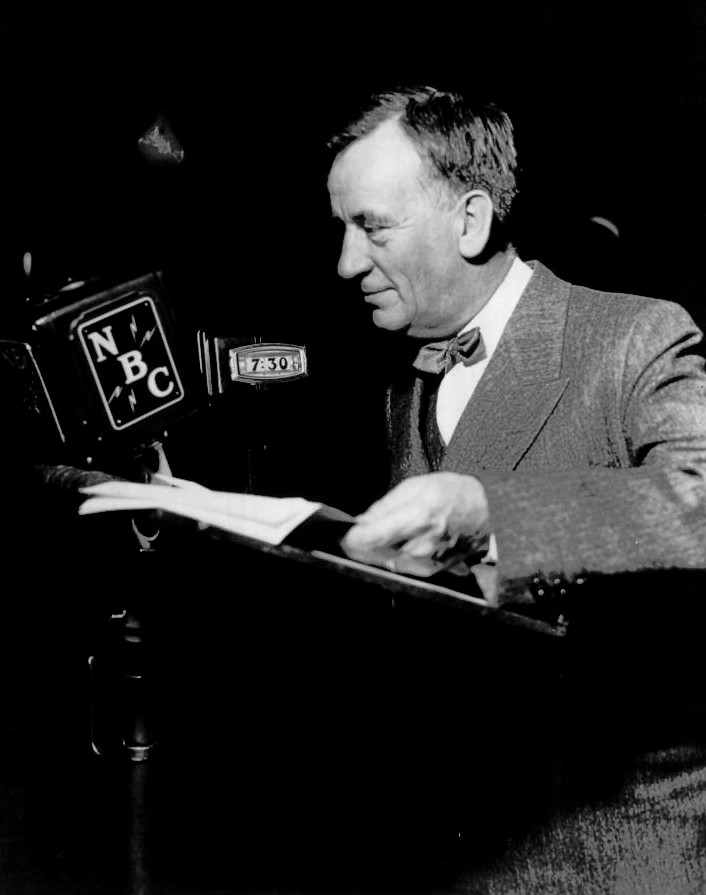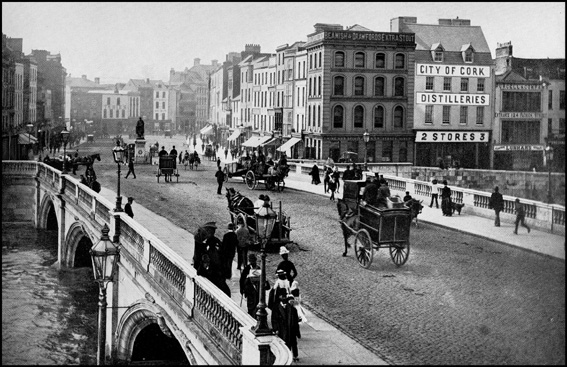« March 10, 2024 - March 16, 2024 | Main | March 24, 2024 - March 30, 2024 »
March 23, 2024
In Praise of Structure
.jpg)
Above: E practicing Structure. This 2006 post is from our famous Evergreen Collection. We haven't seen a need to revise it much.
Do we lawyers know how to get things done, done right and done on time? Do we even value that?
I wonder.
Is our standard for day-to-day working needlessly and embarrassingly low? Are we exporting that low standard whenever and wherever we can?
No, I am not talking here about the simple keeping face or survival requirements of meeting client deal or court deadlines, or even about the clichés of working hard, creative thinking, out of the box thinking, being persistent, or working smart.
I mean structure--a real standard for working--and "practicing structure" every day. It's the discipline of: (1) having a plan or strategy for any one project (client or non-client), (2) meeting internal project deadlines (not just jurisdictional ones) no matter what, and (3) insisting that everyone in your shop "buy into" the discipline of keeping to that overall plan or strategy and timetable.
"Structure" is not just the hard process of getting things done. It's a frame of mind and a value which must be sold to others in your shop--like the importance of making that 5 minute call to a client about a loose end at the end of the worst day you can remember, even while you could do it the next morning at 8:00. It's realizing that letting anything but emergency tasks "slide" makes you inefficient, unlikely to meet your real goals, and tired.
Do you go into work every day with a idea of what needs to be done on each project, and knowing the difference between "important" and "urgent"? Example: Monday is your deadline to have the final changes and notes to your web designer on your new firm website, an important but not urgent project you've talked about at internal meetings for months.
So far, for once, you have been on track. But on Monday a longstanding client calls with two new projects; the new projects are exciting but not THAT urgent in the sense they need to cut into internal deadlines and other goals for Monday. You need to take some first steps, though, to get on top of the new matters for your client. After all, these folks are the main event.
Key ongoing internal project v. new client project. Which gets the most attention that day? Which slides? Answer: they both get attention, and neither slides. The website (long-term important) and the new client project (short-term important) are both critical projects.
Years ago, the Stephen Coveys and Edwards Demings out there pointed out that business people burn themselves out by waiting around only for "the urgent" in a kind of manic crisis management that keeps other important things from ever getting done or ONLY getting them done when they morph into a crisis.
For lawyers, other examples would be only respecting deadlines like transaction closing dates and court-filing deadlines--to hell with everything else.
For a long time I've thought that American business schools and the training programs of global and often publicly-traded companies do a much, much better job than do law firms of training recruits to value and adhere to the structure of a plan on an item for action. It's almost as if law school and firms deem us all such "professionals" and "artists" that we are beyond learning skills of project planning and execution.
What a crock. Because you're a lawyer, or other professional (MD, CPA, engineer, broker), you now have a license to be incompetent, semi-competent, or a chronic screw-up on the details of getting much (if not most) your of work done? You're special?
Of course not.
Not learning the value of pushing non-urgent but important things along at a steady pace has cost us dearly. As motivated as lawyers often are, our discipline for sticking to anything and seeing it through is often poor; again, unless it's urgent, we just don't see its value. Do our best clients run their businesses that way?
This attitude is the norm, and we lawyers--who rarely innovate or take a leadership position on anything in commerce--are just fine, thank you, with it. After all, "all the other law firms" are mediocre on the discipline of getting things done, and have "crisis-only" mentalities. Why shouldn't we be that way?
So we waste time blowing off important, but longer-term projects. Worst of all, we send to others in our firms, and especially to younger lawyers, the message:
"No worries--just work on a barely adequate level; don't do things until you have to; and if it's not urgent, let it slide."
As with client service, and customer care, our standard for day-to-day working is not only embarrassingly low, we are exporting that low standard whenever and wherever we can.
WAC original post: March 27, 2006
Posted by JD Hull at 08:38 PM | Comments (0)
March 22, 2024
Newly Improved and Righteous: 107 Things Long-Divorced Amoral Lawyers Know

WJC and writer, January 1, 2009, noon, Charleston
1. Date no one named Zoe, Brigit or Natasha.
2. No one you just met can leave anything in your home or hotel room.
3. Don't do the au pairs.
4. All British women are named Lucy, Pippa or Jane.
5. British women never like British men.
6. The Bluebook: A Uniform System of Citation, the most widely used legal citation system in the United States, was first published in 1926. It is always important.
7. Legal or woke interviews don't tell you much.
8. Have a co-worker in same room if you interview someone.
9. Don't jump to hire law grads with blue collar backgrounds. Some think they've arrived and are done.
10. Women make better associate lawyers.
11. On documents, Rule 34 (Production of Documents and Things) and Rule 45 (Subpoena) of the Federal Rules of Civil Procedure do very different things. Know what they are.
12. Dogs are the best thing about this planet.
13. Cats not dogs if you travel.
14. Great looking women think they're ugly.
15. Pay attention to little things.
16. Irish, Welsh, Finnish, Ethiopian and Afro-American women are heroes. Forever in charge. Enduring.
17. A disproportionate number of Irish people are drunks.
18. A disproportionate number of Irish people are verbally or lyrically gifted.
19. Jewish doctors do not understand Irish, English, German or Russian drunks.
20. Jews and Italians are the best drinkers. They have the genes. They have rules.
21. The Jews are It. A consistently awesome and world changing tribe for 2500 years.
22. Russian women are cheap, treacherous and insane.
23. For decades the wrong people have gone to law school.
24. Lawyers are less well educated, less well rounded and less culturally literate every decade.
25. Narcissists get stuff done.
26. There are at about 40 exceptional American colleges and universities.
27. Do one absurd or silly thing every day.
28. Never be impressed by Phi Beta Kappas.
29. Always be impressed by Marshall scholars.
30. Have at least 3 impeccable suits.
31. Don't wear bow ties every day. Almost every day is fine.
32. Cuffs on all long pants except jeans and dinner jacket trousers.
33. Wear khaki pants and suits or seersucker suits in summer. Summer is Memorial Day to Labor Day.
34. Twice a month dress like a pimp from a New Orleans whorehouse.
35. Learn your family history on both sides back at least four generations. Know who you are.
36. Talk to people on elevators. All of them.
37. Don't do Europe with other Americans.
38. Just 2 cats.
39. If you drink, master Sheehan's Rule: "If I don't remember it, I didn't do it."
40. When in Rome, do as many Romans as you can. ~ Hugh Grant (b. 1960)
41. Always attribute. Especially when you think no one will notice.
42. Leave the campsite better than you found it.
43. Never let anyone tell you how to feel, think, act, write or speak.
44. Never let anyone tell you who you are.
45. One juror will always surprise you big time. Learn who that is before you close
46. Always talk to jurors post-verdict.
47. Never communicate in any manner ever with that one female juror who seemed to like you.
48. Women are meaner, more vindictive and more treacherous than men.
49. The dumbest woman is 100 times more complex than the smartest man.
50. Men are simple. There is not much going on.
51. Rule 36 (Requests for Admissions), my friend.
52. Rule 56(d) (When facts are unavailable to the non-movant) is misunderstood.
53. Civil RICO is an unintended consequence. Use it the right way.
54. Seldom watch television.
55. Every Mom suffers.
56. Your Mom is your best friend.
57. Buenos Aires has the best looking people on this planet.
58. Great lovemaking cannot be learned.
59. Love can be learned.
60. There are no lapsed or recovering Catholics.
61. Don't buy cheap shoes.
62. Shoe trees. Cedar.
63. Jewish women never have great legs.
64. Japanese women are the best helpmates.
65. Slightly insane WASP women are the best lovers.
66. People born after 1980 should not have babies, jobs or dogs.
67. Brown shoes go well with gray suits. No one knows why.
68. Your handkerchief should never match your tie.
69. Nothing good takes just 10 minutes.
70. Being right is expensive.
71. No prayer is imperfect.
72. The best prayer says thank you.
73. Not caring what people think is a superpower.
74. The English look down on anyone non-English. This will not stop.
75. The French and Irish are playful.
76. Eastern Europeans are not playful.
77. When your mouth is dry, you know you're plenty high. ~ George Thorogood
78. Don't tell people you just met your problems.
79. Copy someone on every letter.
80. Never write a letter. Never throw one away. ~ Unknown
81. Jewish men are overly-suspicious. There are reasons for it. Work with it.
82. Irish men talk too much. There are no reasons for it. Work with it.
83. Never needlessly anger the Irish, the Welsh, Scots or Sicilians.
84. Be nice to people who just had a downfall. Don't pile on. They'll be back.
85. Avoid people with no enemies.
86. Beware of the lily white. ~ J. Dan Hull, Jr. (b. 1900)
87. Employees who say they'll double-check never checked the first time.
88. Don't celebrate victories too long.
89. Jimmy Page and Eric Clapton worked harder than you did.
90. Attitude is more important than facts.
91. Employees either help you or hold you back. Nothing in between.
92. Persian women make too much noise.
93. Tribes are always important.
94. Dogs have owners. Cats have staff. ~ Ellen Jane Bry
95. Nothing is more important than a first kiss.
96. Don’t hire broke or broken people.
97. Write prompt handwritten thank you notes.
98. The arts are central to life. They are not optional. ~ Julian Barnes
99. Plan for surprises.
100. Resist perfectionism.
101. Each person has a thousand selves. ~ Hermann Hesse
102. Men say the vilest possible things to each other they don't mean.
103. Women say the nicest possible things to each other they don't mean.
104. Everyone you meet is not in your mood.
105. You will never know anyone's entire story.
106. End everything on a high note.
107. Trust no one in Budapest.
Posted by JD Hull at 11:59 PM | Comments (0)
Melvin Tolson's Harlem Gallery
A funny, fearless and densely layered poem (1960s super-critic Karl Shapiro said the "baroque" style used made it funnier and more ironic), Melvin B. Tolson's Harlem Gallery was first published in 1965, shortly before Tolson's death in 1966. Nearly 160 pages long, it showcases and comments upon a wide variety of humans living in that pulsating, screaming, dancing and crying New York City neighborhood from the time of the Harlem Renaissance in the 1920s through the 1950s.
Twenty years before Harlem Gallery, Tolson had finally found the widespread recognition and praise through his customary shorter and more conventional verse forms. But Harlem Gallery surprised readers and critics with its novelty and verve.
A separate poem was crafted for each human subject in the gallery, based on encounters and informal interviews Tolson conducted when he lived in New York for a full year. In each poem, however, Tolson, who was ethnically both African-American and native American, continued to opine about race, and about the difficulty of squaring the actual experiences of American minorities with the idea of equality promised by the American experiment. True, the form of Harlem Gallery suggests that it is as least loosely modeled on Edgar Lee Master's Spoon River Anthology--to which Tolson's steady parade of characters has been favorably compared. Tolson's gallery characters, however, speak the many colorful and often-warring dialects one could hear on the Harlem streets.

Posted by JD Hull at 11:43 PM | Comments (0)
March 21, 2024
Rule 7: Know Thy Client
See Rule 7: Know the Client. Every great client wants you to know him, her or it.
Take time out to learn the client's stock price, day-to-day culture, key management figures, industry players, industry reputation, overall goals and major things it tells the Securities and Exchange Commission. The client is publicly-traded, you say? Wonderful. You have much to read, friend. Also get a feel for what other credible sources--the client's website and public filings are not enough--are saying out there about your client.
Visit the client's offices and plants, too, especially if the client is small or privately held. Seeing live operations and key players moving around and interacting speaks volumes. Early on, and for every client, see as much as you can in 3D. Hey, it's fun. Do it free of charge.
Learn something about the client's history. Get a grip on its past and true origins. How your Houston-based petroleum or gas drilling client started out in 1884 in Indianapolis making pumps for bicycle tires will make sense, and maybe put a few things together for you. Even more importantly, history may tell you lots about the client's corporate "personality" and "culture", now and during the past 130 years. You may discover why the client now behaves as it does with its employees, and with vendors and competitors, or why it has a certain reputation in the marketplace.
By the way, in established and larger companies, my take is that corporate cultures and personalities--the Good, the Bad and the Strange--rarely bear any relationship to the make-up, character and day to day actions of individuals who currently lead and manage the company. And even if I'm wrong about that, personality, culture and atmospherics are certainly worth knowing about.
Finally, as you work for the client, does the talented in-house lawyer, GC or other client representative you must answer to actually pick up on your newly-acquired knowledge, nuances and insights? Yes. Absolutely.

Posted by JD Hull at 10:50 PM | Comments (0)
March 20, 2024
Cultural Literacy. Is it time yet, America?
Education is not just about getting a job.

Posted by JD Hull at 11:43 PM | Comments (0)
Ray Davies: A Nod to Old Blighty.
Ray Davies cries "Victoria", Glastonbury 2010
Posted by JD Hull at 08:14 PM | Comments (0)
March 19, 2024
Michigan Links, Golf and Eddie Guest, the People’s Poet, 1919.

Guest in Detroit, 1935
Enormously popular for the first half of the 20th century, Detroit’s Edgar A. Guest (1881-1959) charmed America with simple and often funny upbeat poems celebrating Midwestern common sense and optimism. No. He’s not my favorite poet. But I’ve a special connection to Guest. He owned a house in a small but storied Michigan summer community where I spent Junes and Julys of the 1960s growing up in Michigan, Illinois and Ohio. He died just before my family’s first visit there. His house on Lake Huron was purchased by parents of one of my Detroit classmates. So I often played near and sometimes in that huge dark house made of large dark logs with the largest porch I’d ever seen at the top of Cliff Road. Guest was always closely connected to the place. It seems odd we never met. He was greatly loved and always somehow still alive in that place. At least it seemed that way to me.There was old golf course—one of Michigan’s first courses—nearby that my brother and I learned on. Guest played the game and wrote several fairly schmaltzy but fun poems about golf. This one appeared in 1919 as part of his highly popular “A Path Toward Home”.
“A Lesson From Golf”
He couldn't use his driver any better on the tee
Than the chap that he was licking, who just happened to be me;
I could hit them with a brassie just as straight and just as far,
But I piled up several sevens while he made a few in par;
And he trimmed me to a finish, and I know the reason why:
He could keep his temper better when he dubbed a shot than I.
His mashie stroke is choppy, without any follow through;
I doubt if he will ever, on a short hole, cop a two,
But his putts are straight and deadly, and he doesn't even frown
When he's tried to hole a long one and just fails to get it down.
On the fourteenth green I faded; there he put me on the shelf,
And it's not to his discredit when I say I licked myself.
He never whined or whimpered when a shot of his went wrong;
Never kicked about his troubles, but just plodded right along.
When he flubbed an easy iron, though I knew that he was vexed,
He merely shrugged his shoulders, and then coolly played the next,
While I flew into a frenzy over every dub I made
And was loud in my complaining at the dismal game I played.
Golf is like the game of living; it will show up what you are;
If you take your troubles badly you will never play to par.
You may be a fine performer when your skies are bright and blue
But disaster is the acid that shall prove the worth of you;
So just meet your disappointments with a cheery sort of grin,
For the man who keeps his temper is the man that's sure to win.
Posted by JD Hull at 11:41 PM | Comments (0)
Pointe Aux Barques, Michigan
For me, it beats Big Sur and the Austrian Alps. My favorite place in the world, it is desolate in the winter and still beautiful. Not too many people live here year round: about 10, they say, and even that may be a U.S. Census error. No one around. PAB sits on the northern-most point of the Michigan Thumb, between Port Austin and Grindstone City, on Lake Huron. It was built as a resort community for St. Louis and Detroit business people in the mid-1890s. When I was growing up and we moved about after leaving the DC area--Chicago, Grand Rapids, Detroit, Chicago again, and finally Cincinnati--we spent June and July here no matter where we lived. Had my first "businesses" here (teaching tennis and later a carwash with my brother). This was the only constant place in my childhood. I still dream about the cliffs and the lake and smallmouth bass and our four dogs and my friends. Edgar Guest, the people's poet, a kind of lyrical Will Rogers, owned a cottage on the main still-nameless road. I used to sit on his porch with my first girlfriend, with whom I am still in touch. I've been here in the winter before, when I was in law school; yet being here during any season is hard to describe.

Posted by JD Hull at 12:59 AM | Comments (3)
March 18, 2024
Redux: The War Against Legal-Speak

Sir John Popham (1531–1607) was an MP, Speaker of the House of Commons, and Lord Chief Justice of England. We think he would speak and write differently if he were alive today.
Lawyer-Speak and Legalese. Of the lamer lawyer-centric institutions, only "Professionalism" and "Work-Life Balance" are more embarrassing, abused and irrelevant, and more likely to undermine clients, than the way in which many lawyers continue to speak and write. At least those two prissy battle cries originally had a point. But Legalese never had a point.
A few years ago, a law firm sent us a draft of a simple housekeeping agreement. It was a 3-page confidentiality agreement used during talks for an acquisition. We responded by submitting our own draft because, among other things, the draft we had received (presumably a "model" they had around their office) contained this language:
"Effective on even date herewith, the parties hereto hereby agree to...".
Whoa. How about just one date at the top or bottom of the Agreement and then say "The parties agree..."? And if the whole thing is an "Agreement", with language showing that the parties intend to be bound, maybe you don't even need that?
Either would save trees, ink and space, and would get the idea of contract across, and out of the way. And either would help diminish the image of the self-important "I'm-special" lawyer rocking back and forth in his chair, and talking to himself like a mental patient.
(from past WAC? posts)
Posted by Holden Oliver (Kitzbühel Desk) at 11:59 PM | Comments (0)
March 17, 2024
Saint Patrick, Bishop of Ireland , 1746, Giambattista Tiepolo

Posted by JD Hull at 09:03 AM | Comments (0)
The Lorica of Patrick

I bind to myself today
The power of Heaven,
The light of the sun,
The brightness of the moon,
The splendour of fire,
The flashing of lightning,
The swiftness of wind,
The depth of sea,
The stability of earth,
The firmness of rocks.
I bind to myself today
The strong virtue of an invocation of the Trinity,
I believe the Trinity in the Unity
The Creator of the Universe.
from "St. Patrick's Breastplate", or The Lorica of Patrick
Posted by Holden Oliver (Kitzbühel Desk) at 12:59 AM | Comments (0)